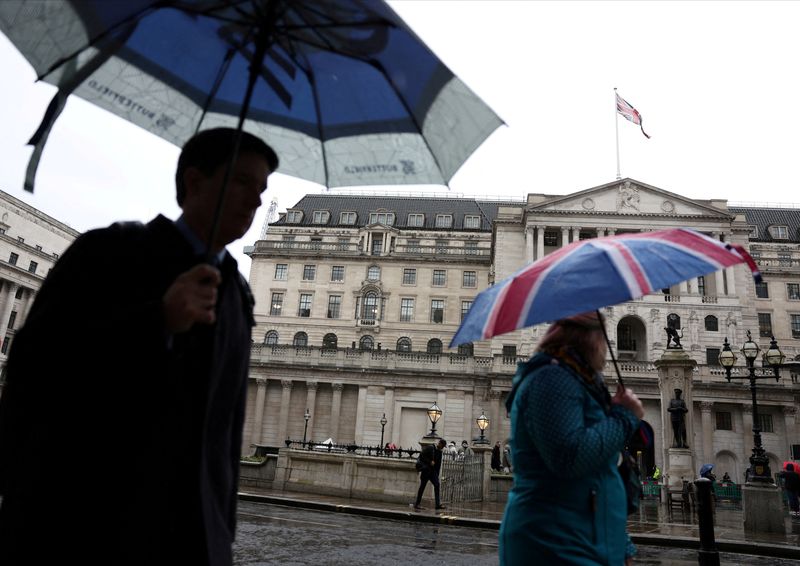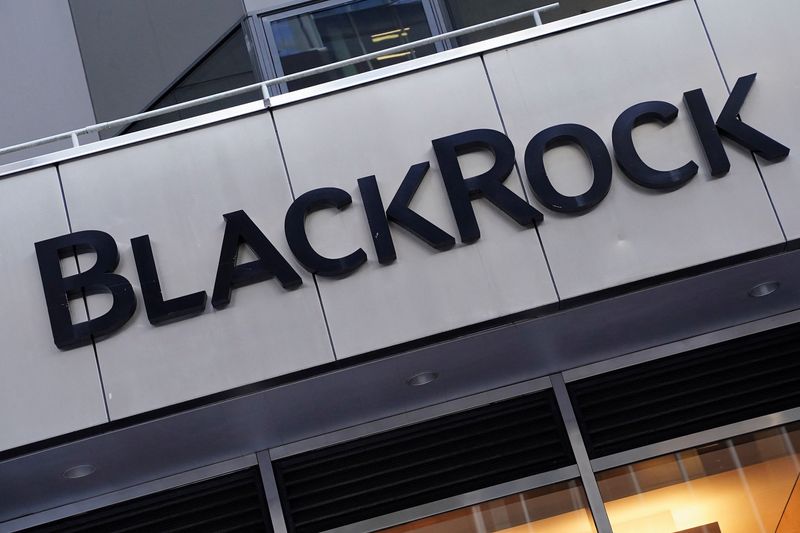By Carolyn Cohn and Iain Withers
LONDON (Reuters) - Some British pension funds are being told by asset managers to come up with more cash to support their hedging positions after a recent jump in borrowing costs, but pensions advisers told Reuters this week the market was behaving in an orderly way.
XPS and Gallagher said some funds had been instructed to post more cash to maintain derivatives positions they hold through so-called Liability Driven Investment (LDI) strategies.
BlackRock (NYSE:BLK), a major LDI provider, said in a note to clients on Friday that although higher borrowing costs will have reduced pension schemes' collateral resilience, funds were better prepared than previously to withstand volatility.
The market moves are the first big test of the pensions market since an industry overhaul of LDI usage to reduce risk and meet regulatory demands for more collateral and lower leverage. The derivatives will require more collateral against them to make up for the movement in price.
LDI, which helps funds meet future payouts by hedging against moves in bond yields, was at the centre of a crisis in September 2022, when plans by the government of then-prime minister Liz Truss for unfunded tax cuts sent yields surging.
Pension advisory firms XPS and Gallagher, along with six other industry players, said the market had responded to this week's sharp selloff in debt markets in an orderly manner.
The Bank of England and The Pensions Regulator declined to comment on Friday.
The yield on 30-year British government bonds, known as gilts, hit a fresh 26-year high on Friday as higher inflation expectations and worries about Donald Trump's imminent arrival in the White House prompted investors to sell.
Ten-year gilt yields are up by 25 basis points, their biggest weekly jump in a year but far less than the nearly 70 bps weekly jump seen in 2022.
BlackRock, a big player in LDI services alongside Legal & General (LON:LGEN) and Insight Investment, said in its note explaining the selloff that pension schemes were starting from a different place to previous years.
It was nevertheless "vital" they continued monitoring their collateral, the firm added.
The spikes in yields following the Truss government's "mini-Budget" in 2022 triggered collateral calls on funds' hedging positions, forcing operators to fire-sell assets to raise cash.
"If yields did spike materially, then you could see things being stress-tested again. But we're certain the industry is in a much better place," said Carl Hitchman, chief investment officer at Gallagher Benefit Services UK.
One client had received a cash call with a deadline of next week, but the fund had liquidity to meet this, he said.
XPS said it has seen some capital calls, but CIO Simeon Willis said this was the market operating normally.

The gradual rise in British borrowing costs this time had made it manageable, advisers said, with Insight Investment, Legal & General and Schroders (LON:SDR) all saying the LDI market was proving resilient and orderly.
"Pension funds are well prepared and managing the volatility effectively," a spokesperson for BT pension fund manager Brightwell said.
